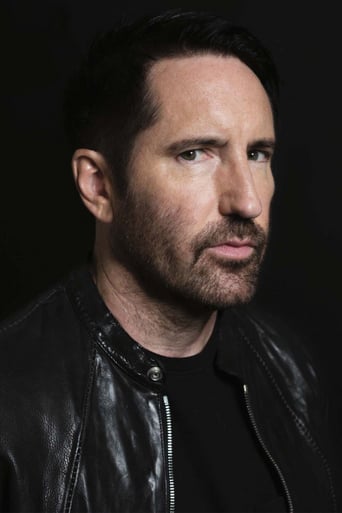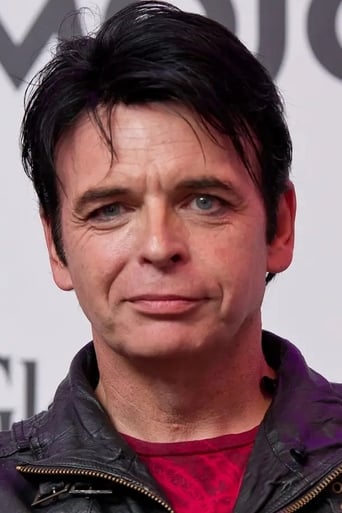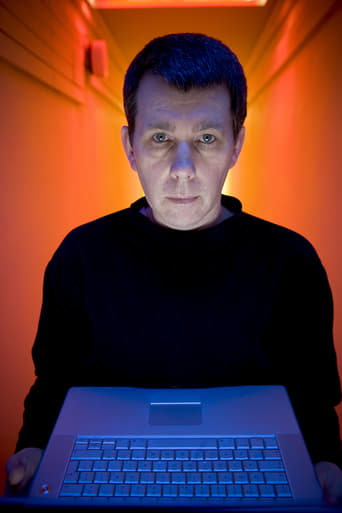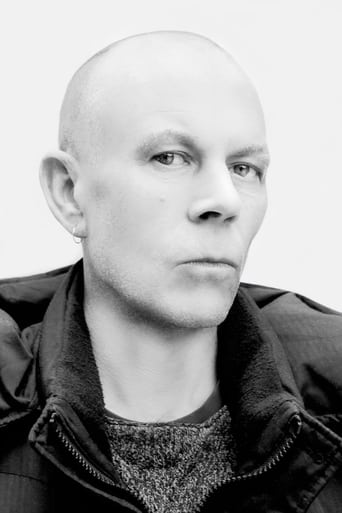Actuakers
One of my all time favorites.
AnhartLinkin
This story has more twists and turns than a second-rate soap opera.
Ezmae Chang
This is a small, humorous movie in some ways, but it has a huge heart. What a nice experience.
Juana
what a terribly boring film. I'm sorry but this is absolutely not deserving of best picture and will be forgotten quickly. Entertaining and engaging cinema? No. Nothing performances with flat faces and mistaking silence for subtlety.
pronomen-28329
I Dream Of Wires is an independent documentary about the history, demise and resurgence of the modular synthesizer. It features interviews with modular musicians, inventors and enthusiasts, including Trent Reznor (Nine Inch Nails), Gary Numan, Vince Clarke (Erasure), Morton Subotnick, Chris Carter (Throbbing Gristle), Daniel Miller, Carl Craig, Flood, Cevin Key (Skinny Puppy), James Holden, Factory Floor, Legowelt, Clark, John Foxx and Bernie Krause and more. I enjoyed this documentary a lot.
drluccia
Mills College, 5000 MacArthur Blvd., OAKLAND, California. Not Berkeley. Why show an aerial of UC Berkeley, and then move to introducing Buchla at Mills? Pick one. But, in any case, Mills is in Oakland. If you can't get the physical location right, what else does your film get wrong?Previous reviewer has mentioned your complete lack of the British people and instruments, so I'll only support them. You have a mention of how the Rolling Stones, the Beatles, ELP, etc., had synthesizers. How did these British musicians all find synthesizers if there were not British influences? Again, if your film makes such huge omissions, what else is missing?Also, if not for Wendy Carlos, "Switched-On Bach," her score for, "A Clockwork Orange," and the popularization of electronic music, we may not have seen the proliferation of synthesizers and electronic music. But, you do her a disservice by only allowing critiques of, "Switched-On Bach." She continued to widen the vocabulary of electronic music throughout her life and remains a pioneer.Granted, you are trying to tell the story of the beginning, but your basic factual errors and omissions became distracting to this viewer and put this film's veracity into question.
Phillip MJ Bacon
For one involved in this endeavour from the beginning; I am surprised to say the least how one sided this film is. Sure there are a few Brits, new kids on the block giving their six penny worth... but nothing of the HUGE contribution we made. The work of the Radiophonic workshop at the BBC founded in 1958, the contributors of which are legendary, so forgive me for mentioning the more famous ones the late Daphne Oram & Delia Derbyshire, co creator of probably the first commercially successful piece of Electronica; The Dr Who theme. The Musys studio in the 60's founded by father & daughter team the Zinovieff's; who later helped form EMS. They in turn built many innovate synths, large and small for the European market and kick started German interest, but barely got a mention. These were our hero's and quite independent of the rumblings the other side of the pond.We were aware of Moog , but more his filter, a variation of which EMS had already developed. So much so that a friend owned the Moog rights outright in the UK until recently, when Don Buchla also came into public consciousness. There was no internet then and American music was not very popular, yet they failed to mention those that were; Phillip Glass, Terry Reilly, not to mention Tontos Expanding Headband. The US analogue synth industry crashed and burned in the early Eighties with the use of digital, in part trying to overcome Moogs filter patent and stability/tuning issues. Then there was the influx of cheap Japanese gear, only notable for FM synthesis and the work of an American inventor. Fast forward to the notion that American company reintroduced the modular synth in 98, which Doepfer and British company Analogue Systems were doing in Eurorack format from the early nineties. The truth is out there... but at least good because analogue is back!
M Nissley
Tedious and awful. Almost unwatchably boring. A bunch of old guys relishing the old days with very little to say. Visually it is 1.5 hours of still pictures of knobs, wires, and racks of electronic equipment cut with 70 year old men talking. The whole idea is how great synthesizers are and how they impacted modern music, but no modern music is played or featured, They did not or could not buy the rights to any music to make this doc prove its point. A dull, goofy, bleepy, blurpy interstitial series of synth sounds accompanies the entire thing, but when they talk about a use of the synth, they never play the actual popular music or any kind of example. This is one of the absolute worst documentaries I have ever seen, and I came into it with an appreciation and interest in the subject. This should have been shelved and never released for lack of purpose and lack of the proper resources to pull off the project. I was in shock at how incredibly dull this was.




